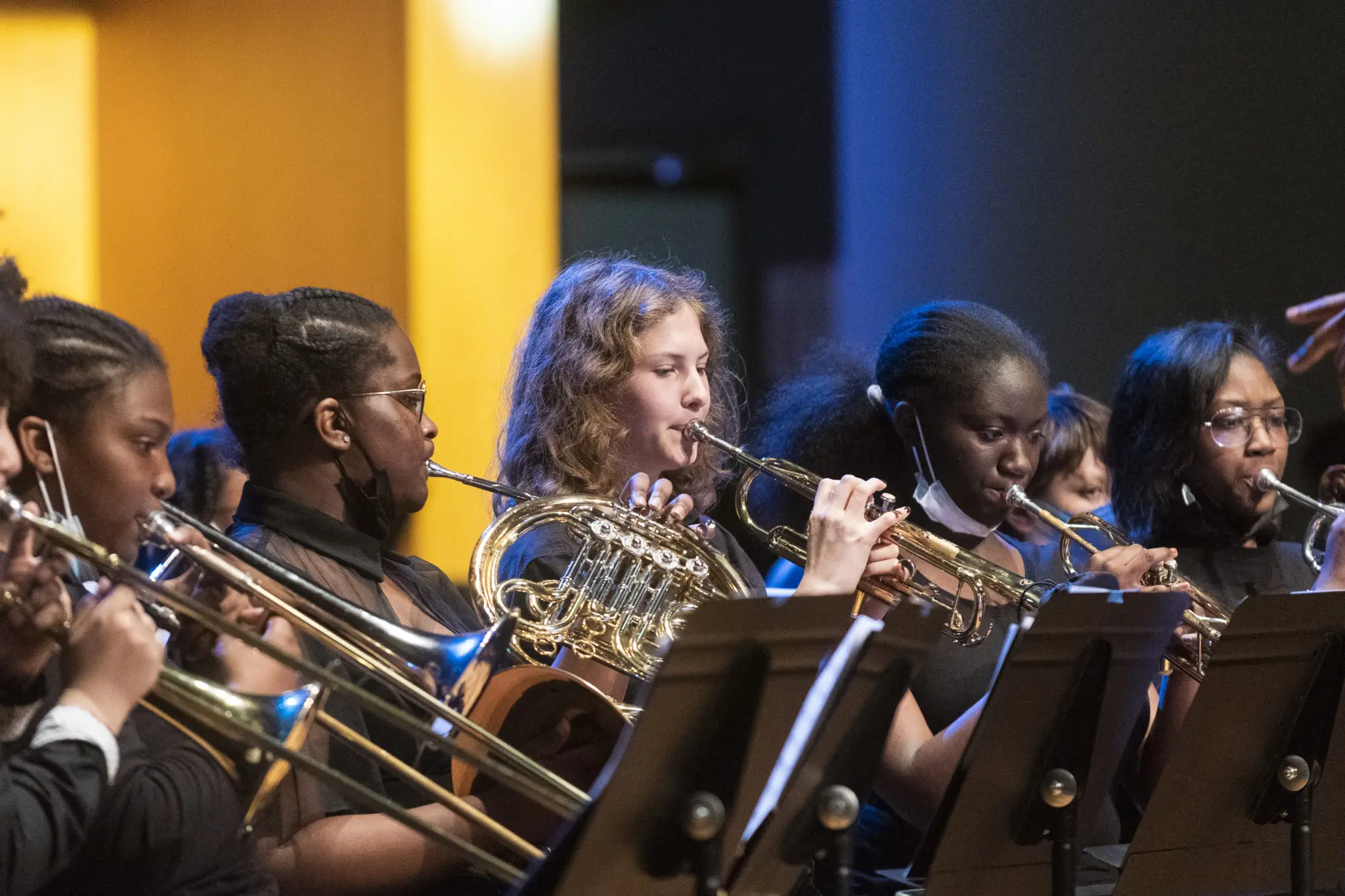About Marian Anderson
One of the most celebrated singers of the twentieth century.
Philadelphia-born contralto Marian Anderson was one of the most celebrated singers of the twentieth century. She was born on February 27, 1897 in South Philadelphia. Anderson’s strong contralto voice and three-octave range made her a valuable singer within the Union Baptist Church and her community as a member of the People’s Chorus. Thanks to the support of these and other organizations within the Black community, funds were raised for Anderson to further her studies in high school and private musical study.
Growing up in Philadelphia, Anderson was exposed to high-quality music performed by local talented musicians, as well as national and international artists on tour. One of these national artists, tenor Roland Hayes, inspired Anderson’s to master European art songs, leading her to study in Europe to further her musical career. Following her studies in London and Germany, Anderson toured across Europe, singing on stages from Finland to Paris to Russia. She eventually toured most of North and South American, and Asia.
After Anderson’s success as an international artist singing across the world, she was denied the opportunity to sing at the Constitution Hall due to the color of her skin in 1939. With support from Eleanor Roosevelt, the NAACP, and others, Anderson delivered a historic open-air concert at the Lincoln Memorial on Easter Sunday, April 9, 1939, which reached 75,000 listeners at the memorial, and more via radio. After this momentous achievement, Anderson went on to receive many awards. In the same year, Eleanor Roosevelt presented her with the NAACP’s Springarn Award for distinguished achievement. In 1941, Anderson was granted the Edward Bok Award by Philadelphia for her distinguished services.
Anderson continued to break down barriers for future musicians of color after her performance at Lincoln Memorial. In January 1955, Anderson was invited to sing the lead role of Ulirica in Verdi’s Un ballo in maschera. This performance made Anderson the first African-American to sing a role with the Met.
Anderson was an active supporter of the arts and a humanitarian. After Anderson’s Met debut, President Eisenhower named her as an alternate delegate to the 13th General Assembly of the United Nations in 1958. In 1963, President Lyndon Johnson awarded her the Presidential Medal of Freedom and appointed her to the National Council on the Arts in 1966. Upon Anderson’s retirement, she continued to receive accolades, including a presentation of the Congressional Medal by President Carter in 1978 and over fifty honorary degrees. Anderson was also awarded the Grammy’s Lifetime Achievement Award in 1991. She passed away in 1993.
Thank you to the Penn Library’s Marian Anderson Collection.
If you’d like to learn more about Anderson’s life, please visit the Marian Anderson Collection at the University of Pennsylvania Library here

